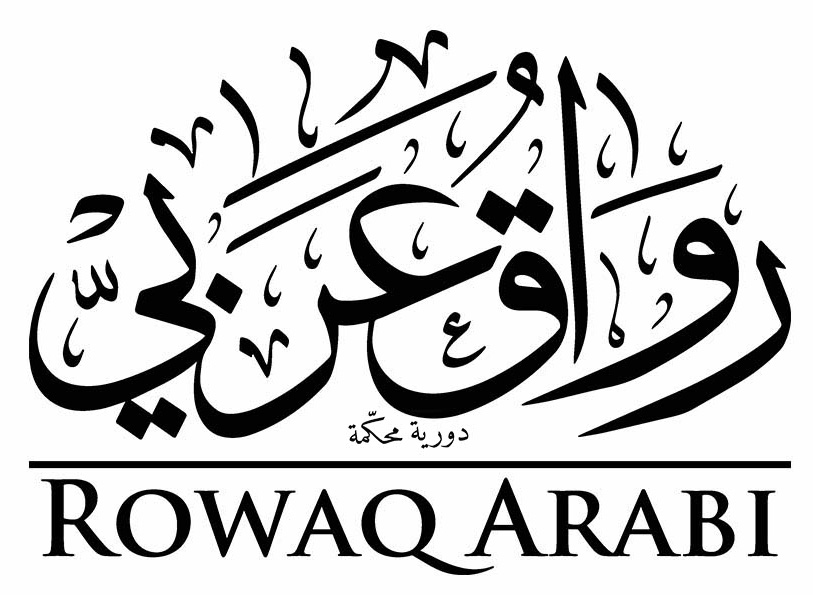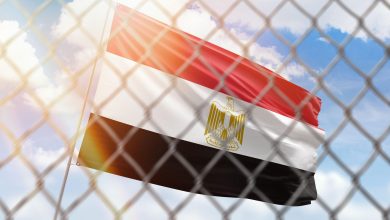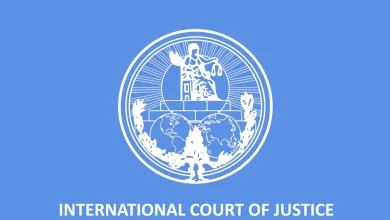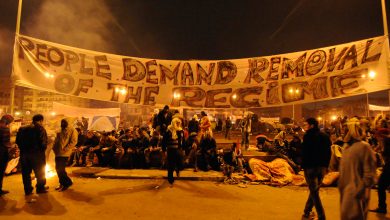Views: Tunisian Human Rights Organisations and the ‘Path of 25 July’
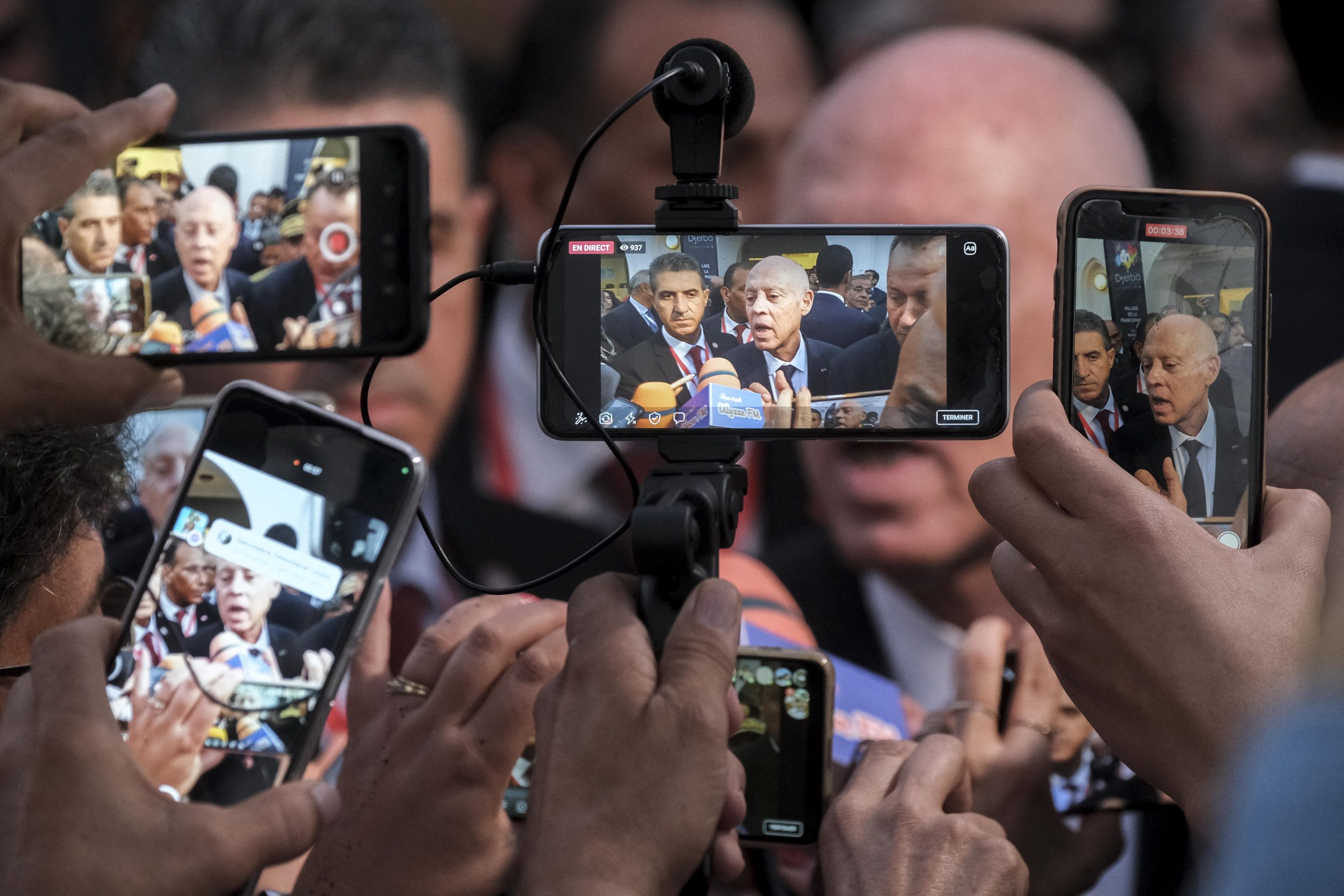
Citation: Nouira, Asma (2022) ‘Views: Tunisian Human Rights Organisations and the “Path of 25 July”’, Rowaq Arabi 27 (3), pp. 31-40, https://doi.org/10.53833/LYXX4930
25 July 2021 is an ostensibly crucial date in Tunisia’s democratic transition. Major transformations were witnessed in the preceding decade; the 2014 constitution was drafted and a new political order was established, which paved the way for several elections and the liberating of political life. Yet at the same time Tunisia’s democratic transition was impeded by multiple political, economic, and social crises. Unlike the 2013 crisis, which itself nearly blocked the transition and sent the country towards an unknown fate, the 2021 crisis was comprehensive and multifaceted. Tunisians were primed by the overwhelming crisis to accept—and even welcome—the exceptional measures announced by President Kais Saied on Republic Day in 2021 to confront ‘the imminent threat’.
Groups loyal to President Saied, assembled under the banner of the Supreme Youth Council, used social media to call for demonstrations on 25 July 2021 to ‘save the republic’. They issued a statement demanding the dissolution of parliament, the arrest and military trial of all politicians, and the suspension of the constitution.[1] And in fact, groups did come out to demonstrate across the country, including in front of the Assembly of the People’s Representatives. Several headquarters of the Ennahda movement, which was held responsible for the crisis,[2] were also attacked. In a meeting of the National Security Council, the president announced a number of exceptional measures—freezing the parliament, lifting MPs’ immunity, and dismissing the government[3]—based on Article 80 of the 2014 constitution. The president enjoyed the political and social backing of various constituencies united by their dissatisfaction with the events of the previous decade, for which they held the Islamists fully responsible. Nevertheless, many political parties, civil society organisations, and a segment of elites did not support him, or at least not unconditionally. Positions on President Saied’s exceptional measures were generally divided. Early on, some political parties (Ennahda, the Republican Party, the Workers’ Party) called what happened as a ‘coup against the constitution’ and the beginning of a new dictatorship; while others (the People’s Movement, the Free Destourian Party, and the Popular Current) described it as ‘correction of the revolutionary trajectory’ and the beginning of a war against corruption and the corrupt. Still other parties adopted a position somewhere in between: not explicitly rejecting the president’s actions but calling on him to define a roadmap and provide further guarantees. National organisations and agencies did not reject the emergency measures outright but demanded constitutional guarantees and a clear roadmap. Similar to political parties, human rights organisations took diverse stances, ranging from conditional support for the declared measures to a categorical rejection of the interpretation of Article 80 of the constitution adopted by the president as a legal basis for the exceptional measures he announced.
The president met with representatives of a number of human rights organisations on 26 July 2021to affirm his ‘commitment to ensuring rights and freedoms and respect for the rule of law and the democratic process in the country’.[4] The president and secretary-general of the Tunisian League of Human Rights (LTDH),[5] the president of the Tunisian Forum for Economic and Social Rights (FTDES),[6] and the president of the National Union of Tunisian Journalists were present at the meeting. The same day, Saied received the president of the National Union of Tunisian Women and the president of the Tunisian Association of Democratic Women,[7] together with representatives of other national organisations such as the Tunisian General Labour Union (UGTT), the Federation of Farmers, Tunisian Union of Industry, Trade and Handicrafts (UTICA), and the National Bar Association.[8]
Despite President Saied’s repeated assurances that rights and freedoms would be safeguarded, human rights civil society, which had played a prominent role in the democratic transition in Tunisia, was torn between outright rejection of the president’s actions and support for him, albeit with reservations, despite agreeing on the justifications for his actions and the assessment of the previous decade (2011–2022).
Agreement on the Assessment of the Decade 2011–2022
Describing the last ten years as ‘the black decade’ has become common parlance in the current Tunisian political and media landscapes. Certainly, the transitional phase, which began after the departure of former President Ben Ali, witnessed political successes (the drafting of a new constitution, the organisation of several free and fair elections, and the realisation of some rights and freedoms). Nevertheless, the first decade of the democratic transition was marked by several economic and social failures that came to threaten the transition itself.[9]
In fact, the various assessments of the first decade of Tunisia’s democratic transition tend to be negative, with observers declaring its relapse or entire breakdown. There are many crises at different levels, including at the levels of the elite, the political parties, and institutions and the state. The Tunisian state has neither been able to respond to the demands of the street, faltering in the face of social pressures, nor has it been able to address an economic situation deteriorating since 2011. These crises have led to a deadlock and the public’s loss of confidence in the ruling elites and institutions of governance.
There are two questions that arise from a comparison of the crises that occurred in the former half of Tunisia’s transitional decade and those that occurred in the latter half. Had it been possible to find a way out of the ongoing 2021 crisis through national dialogue between the various political parties, as was the case in 2013? Why have the organisations sponsoring the 2013 national dialogue (UGTT, UTICA, LTDH, and the National Bar Association) been unable to play the same role after 2019?
The experience of the 2013 national not been replicated due to a significant shift in the entire political landscape after the 2019 legislative and presidential elections, which spurred the rise of new actors to decision-making positions, changed the political balance of power, and ushered in the rise of populist forces. Although the UGTT sponsored a national dialogue initiative, the president, a key player in the crises of institutions and governance, rejected it.[10] Various political and civic forces have blamed the crisis mainly on the Islamists, who have played a primary role in governance since 2011. Scenes of intra-parliamentary conflict between Islamists and constitutionalists, and vehement television debates between various political parties, helped generate contempt for politics and erode citizens trust in political elites, giving President Saied’s populist rhetoric greater resonance with the public. Since his presidential campaign in 2019, Saied has been marketed as a personally abstemious, honest man who would restore respect to the ‘people’, reinstate popular sovereignty, and resist corruption and the corrupt elites. His role in deepening the crisis and disrupting institutions was thus not immediately apparent, which partly explains the support given to him by some civil and political forces and large segments of the population.
Disagreements over the President’s Initiative
The events of Republic Day 2021 and the measures introduced over the following year have elicited a varied array of stances and responses from rights organizations. Some rights associations came out clearly against President Saied’s measures, especially his interpretation of Article 80 of the constitution. The position of these associations has been firm and consistent from the beginning and was maintained throughout the following year with all the exceptional measures announced since 25 July 2021, including the dissolution of the Supreme Judicial Council, the new constitution, and the referendum of 25 July 2022.
On 27 July 2021, the Tunisian Association for the Defence of Individual Liberties (ADLI)[11] issued a joint statement with the Committee for the Respect of Freedoms and Human Rights in Tunisia and other civil society organisations titled ‘Republic Day: The Coup against the Constitution of the Second Republic’. Although the associations concurred with Saied’s supporters that the governing coalition, specifically Islamists, was responsible for the current crisis, they believed that ‘the president’s interpretation of Article 80 of the constitution is constitutionally false and politically arbitrary’, leading to the concentration of all three branches of government in his hands. The republican system is manifested only through the separation of powers, the statement said, which guarantees individual and civil rights and freedoms.[12] ADLI categorically rejected what it called ‘Kais Saied’s constitution’. The association issued several reports, in both Arabic and French, demonstrating the danger posed by the constitution to rights and freedoms.[13]
The associations rejected the new draft constitution because, they assert, it is based on fallacies and the falsification of historical facts, as well as the subversion of rights and freedoms. That the draft constitution provides for a democratic system in no way implies the protection of civil and individual rights and liberties. A system may be formally democratic insofar as it allows for periodic elections, but may still not qualify as a liberal democracy. If Saied’s draft constitution includes a chapter on rights and freedoms, this is no more than a declaration absent any guarantees to enshrine or protect these rights.[14] The president’s constitution, which is a hybrid of the 1959 and 2014 constitutions, is believed by the associations to pose three major risks to rights and freedoms: namely, it does not provide for a civil state; it places controls over rights and freedoms; and it is a recipe for weak institutions and individualistic rule.[15]
One of the major risks pointed out by ADLI is the status of the civil state. Article 2 of the 2014 constitution, which states that ‘Tunisia is a civil state based on citizenship, the will of the people, and the supremacy of law’, has been deleted. While Article 1 of the 2014 text (‘Tunisia is a free State…Islam is its religion’) has been dropped, Article 5 of the new draft constitution affirms, ‘Tunisia is part of the Islamic umma and the state alone must work to achieve the purposes of righteous Islam and preserve the self, honour, wealth, religion, and freedom’. This may allow basing legislations on Islamic law (shari‘a). Moreover, it invokes the debate over the universality of human rights and limits to them in the name of cultural specificity based on religion. Another threat to the human rights system under the new constitution is the document’s multiple references to statute for the regulation of freedoms, which is reminiscent of the 1959 constitution. That text guaranteed a number of rights, but made their exercise subject to the limitations of law and the public order, with the consequence that these rights were curtailed by either the legislature or authorities.
In contrast to this firm, clear stance on the measures instituted by Kais Saied a year ago—from the exceptional measures based on his interpretation of Article 80 of the 2014 constitution to various edicts issued by Saied and the new draft constitution and the referendum—other human rights organisations showed support for Saied’s measures while expressing concerns for rights and freedoms. Some rights organisations supported Saied’s declaration of exceptional measures due to the dire crisis experienced by the country at the time. These organizations included the LTDH, the FTDES, and the Tunisian Association of Democratic Women. Their support was conditional on the need to respect rights and liberties and not disrupt the democratic process. On more than one occasion, these groups warned of a possible slide towards individual rule and a return to dictatorship. They denounced the violations seen in the exceptional period, such as attacks on peaceful demonstrations and journalists, and the imposition of travel bans and house arrest without a judicial warrant on political opponents. The organisations urged the president to set a time limit for the exceptional measures and present a roadmap for a way out of the crisis. After the release of the new draft constitution that defined the new political order, however, these organisations realised that President Saied was moving towards the consolidation of an autocratic dictatorship, which prompted them to change their position from conditional support to absolute rejection. In fact, these organisations did not back Saied’s political project so much as they supported his declared intention to fight corruption and hold the Islamists accountable for the failure of the past decade.
On 27 July 2021, the LTDH issued a statement titled ‘Yes to Measures That Respect Rights and Liberties’. After recapitulating the events of Republic Day, the statement affirmed, ‘The league believes the actions taken by the president of the republic respond to the demands of many, broad social and popular constituencies that are fed up with parliament’s distraction from its tasks, the deepening economic, social, and health crisis, rampant corruption, and the prime minister’s open involvement in aggravating the crisis’. Despite its ‘acceptance’ of the exceptional measures, the LTDH emphasised ‘its commitment to the civil state and the republican system in relation to respect for the constitution and the human rights system’. At the same time, it expressed its ‘concern with the concentration of the three branches of government in the presidency’ and called on Saied to set an expiration date on the state of exception,[16] a point reiterated by the Tunisian Association of Democratic Women. The LTDH also called for the swift formation of a reduced cabinet that respected the principle of parity and the neutrality of the military and did not involve the military in political conflicts, a reference to the military units surrounding parliament and denying MPs entry. These organisations also demanded that the president tackle the issues of corruption, terrorism, and political assassinations and called for the disclosure of the circumstances surrounding the assassination of political opposition leaders Chokri Belaid and Mohamed Brahmi.
Two weeks after the declaration of the state of exception, and in the face of the president’s failure to provide a roadmap or a clear vision of the future, some civil society organisations decided to ‘form a joint working committee to monitor the political situation in the country and all violations that may occur or threaten rights, freedoms, and justice’. The LTDH, the Tunisian Association of Democratic Women and the FTDES, in partnership with professional organisations such as the National Union of Tunisian Journalists, the Association of Tunisian Judges and the Tunisian Women’s Association for Research on Development called on the president to establish a clear, time-bound schedule in consultation with civil society organisations. They urged him to respect the separation of powers and judicial independence and to form a government based on the principles of competence and parity.[17]
After the president extended the extraordinary measures ‘until further notice’, on 26 August 2021, one month after the announcement of the emergency measures, the organisations issued a statement[18] affirming their support to Kais Saied with regard to the need to ‘end the corrupt system of government and its agencies that have been turned against the slogans of the Tunisian revolution for freedom, dignity and social justice’. However, the statement criticised ‘the hesitation, ambiguity, and lack of a clear, transparent, time-bound program for the coming period’. The organisations also demanded a role in the post-25 July phase in the form of a participatory community dialogue that would establish this upcoming phase. On the other hand, the statement drew attention to violations such as restriction of the right to freedom of movement (travel bans and house arrests) without legal basis, and they warned that the values of citizenship and democracy were threatened by the return of self-censorship to the media and the narrowing of public spaces for debate. The organisations continued to back the president while remaining vigilant to violations of rights and liberties. Meetings with President Saied continued, in particular with representatives of the LTDH and the FTDES.
Following the declaration of the presidential order on extraordinary measures (Decree 22 of September 2021),[19] which established individual rule and abolished the separation of powers, the LTDH, the FTDES, and the Tunisian Association of Democratic Women, in concert with organisations like the Journalists’ Union and the Association of Tunisian Judges, issued a joint statement on 27 September 2021.[20] At the outset, they reiterated that while they had supported the measure of 25 July 2021 given the general crisis in the country, their support had been conditional and they had sharply criticised all violations of rights and freedoms. The organisations strongly criticised the presidential order, which contained no genuine guarantees for democracy and respect for the values of citizenship and human rights, and said it had been issued absent consultation despite the president’s pledge to do so during his meeting with representatives of the organisations on 26 and 27 July 2021. This, the statement said, was evidence of an ‘individualistic vision that suggests totalitarian rule’. The organisations stressed their commitment to the independence of the judiciary and media institutions and called for the swift formation of a government. The same day, the LTDH issued a unilateral statement affirming the substance of the joint statement and expressing its growing concerns after reading the decree, which, it said, concentrated all powers in the hands of the president without the possibility to review or appeal his decisions. This set such decrees above the constitution, which runs counter to the principle of the inviolability of rights and freedoms. The LTDH renewed its demand for a deadline on the exceptional situation and a return to democracy and participation. It further called for a reconsideration of the provision in the decree placing the president’s decisions beyond appeal, suggesting the creation of a body to hear appeals on decisions that may affect rights and freedoms.[21]
In May 2022, the President issued a decree establishing the National Consultative Commission for a New Republic[22] to write the constitution. The commission comprised three committees: the Consultative Committee on Economic and Social Affairs, the Legal Consultative Committee and the National Dialogue Committee. The Consultative Committee on Economic and Social Affairs, chaired by the head of the Bar Association, was made up of representatives from the following national bodies: the UGTT, UTICA, the Tunisian General Union of Agriculture and Fisheries, the National Union of Tunisian Women, and the LTDH. The Legal Committee consisted of deans of the faculties of law and legal sciences, while the National Dialogue Committee included members of the two committees. The latter’s task was to compile proposals submitted to it by each committee for the ‘establishment of a new republic’.
The law faculty deans rejected their appointment to the Legal Committee, issuing a statement on 24 May 2022 explaining their position and affirming their commitment to the neutrality of universities.[23] The UGTT,[24] a member of the National Dialogue Quartet in 2013, similarly declined to take part in the commission’s work, saying that ‘dialogue through [the commission] will be nominal and consultative and is intended to reach foregone conclusions’.[25]
In contrast, the LTDH agreed to join the commission, having long demanded inclusion in any dialogue (for example, the National Council’s statement of 28 March 2022). The decision to join the dialogue was taken by a majority of members in the organisation’s governing body (thirteen to three with one abstention), despite their awareness of the ‘lack of clarity of the tasks and methodology assigned to the committees’ work’. The LTDH demanded that it be included on the legal committee in charge of drafting the constitution and affirmed that it ‘reserves the right to express its position on the proceedings of the dialogue if it does not conform to [LTDH’s] proposals and fixed principles’.[26]
The LTDH was demonised and accused of treachery for agreeing to participate in the National Consultative Commission for a New Republic, spurring twenty heads of LTDH branches around the country to issue a statement condemning the smear campaigns and urging respect for differences of opinion on the issue of national dialogue.[27] In this context, it should be noted that the LTDH has been heavily criticised by some media professionals and political activists opposed to Kais Saied, who blamed it for not taking a position on political trials and not supporting the hunger strike by political activists. Nevertheless, the league did issue statements denouncing the politicisation of the judiciary after the judgments handed down to Moncef Marzouki, the former president of the LTDH, and Bochra Belhaj Hmida, the former president of the Tunisian Association of Democratic Women. In more than one statement, the LTDH also condemned military trials for civilians and the violation of the rights of politicians opposed to Kais Saied who were placed under house arrest or banned from travel. Nevertheless, it seems that the mechanisms for making and declaring decisions within the association move slowly.[28] In fact, the league’s ineffectiveness, especially after 2011, is due in large part to cleavages in the organisation resulting from the diversity of political currents within it. Since its inception, the LTDH has brought together different and even opposing intellectual and political streams and throughout its history, it has been a haven for political activists. In addition to trade unionists and independents, it has brought together constitutionalists, leftists, Islamists, and nationalists, in some sense taking the place of political parties that were banned or unable to operate. Nevertheless, this political diversity in the ranks has led to several internal disagreements, both before and after the revolution. Its point of strength as a space for politically diverse actors uniting to oppose the repressive regime, had transformed into a weakness diminishing its effectiveness.
As expected, the president did not adopt the draft constitution submitted by the National Consultative Commission, instead putting up his own draft in the referendum, stressing that the commission’s role was only advisory. Positions on the ‘president’s constitution’ ranged from rejection of the document and the tyranny it establishes to support for it in keeping with support for Saied himself.
For the LTDH, its position on the constitution has caused some internal problems. A statement issued on 6 July 2022 signed by the League’s president called on Kais Saied to withdraw the draft constitution and ‘launch an effective national dialogue capable of bringing the country out of the current situation’. The statement affirmed the incompatibility of the proposed constitution with the LTDH’s charter, terms of reference and aspirations in a civil and democratic state. It further stressed the convergence of the organisation’s position with that of various components of civil society and the members of the constitutional advisory committee.[29] Yet on 7 July 2022, several members of the LTDH’s governing body issued a corrective statement, noting that the president’s statement on the draft constitution was not binding to them. It was, in fact, a ‘one-sided, partisan reading of the text of the constitution’ and ‘was less a reflection of the identity of the league than a response to the wishes of people outside it’. The signatories to the second statement stressed that their position was not identical to that of the Salvation Front, which opposes Kais Saied and includes Ennahda and the Dignity Coalition. They did not see the constitution as establishing an authoritarian state and did not demand that the president withdraw it and launch an effective national dialogue.[30]
These internal differences did not prevent the LTDH from joining other organisations in establishing the Civil Coalition for Freedom, Dignity, Social Justice and Equality on 14 July 2022, in rejection of the draft constitution and the referendum. The coalition includes forty associations, including those that previously backed the president’s actions such as the FTDES, the Tunisian Association of Democratic Women, and LTDH, as well as those like ADLI and the Beity Association that rejected Saied’s measures from the outset. On 18 July 2022, the coalition issued a general charter titled ‘No retreat from human liberties and rights, no referendum on the civil state, and a rejection of the policy of fait accompli’.[31] In the charter, member organisations expressed their rejection of the proposed constitution and the referendum ‘on universal human rights’ and refused to engage in the entire process, which they considered a minefield. They had witnessed, the document said, the gradual march towards an autocratic regime following the dismantling of various political institutions established by the 2014 constitution and numerous irregularities likely to undermine democracy even in its formalistic sense (the regular organisation of fair elections). The statement denounced the policy of ‘empowerment’ pursued by the ‘populist’ president for the last year.
Conclusion
The position of Tunisian human rights organisations on the trajectory set in motion on 25 July 2021 ranged from total rejection to conditional support, followed by rejection of the project for the coming authoritarian political system. Despite the difference in attitude towards Kais Saied, rights organisations agree that the governing system, especially the Islamists, is to blame for the current crisis. All of them similarly share concerns about increasing violations of human rights and liberties. There are serious apprehensions about the establishment of a new kind of authoritarianism, different from past regimes seen in Tunisia and closer to one where a single individual holds multiple powers after institutions are dismantled or weakened; these institutions are supplanted by organs that perform certain functions, whether judicial or legislative. Under such a system, individual and collective rights and freedoms would not be safe from infringement.
Based on the events of the past year, and in light of the referendum results and the entry into force of the new constitution, it appears that the democratic transition in Tunisia has been stopped and the country is moving towards a new dictatorship. This brings human rights organisations back to square one. The human rights organisations that founded the Civic Coalition for Freedom, Dignity, Social Justice and Equality concluded the coalition’s founding charter by expressing their ‘willingness to organise all legitimate forms of struggle’ and refusal to bow to violence, threats and accusations of treason, for they have ‘sworn an oath to the victory of the sun, and our sun is Tunisia’. It seems that this declared intent to furthering Tunisia’s democratic transition will require human rights organisations to reorganise internally and enact necessary reforms to become more effective.
This article is originally written in Arabic for Rowaq Arabi
[1] Said, Mehdi (2021) Bīān Sh-shʿb t-tūnsī fī Antfāḍt 25 Jwylīt 2021 [Statement of the Tunisian People in the Uprising of 25 July 2021], Facebook, 17 July, accessed 23 November 2022, https://bit.ly/3tjAs59.
[2] Al-Hurra (2021) ‘al-Awda‘ fi Tunis: Da‘wa li-l-Tazahur li-l-Daght ‘ala al-Siyasiyin’ [The Situation in Tunisia: Call to Demonstrate to Pressure Politicians], 19 July, accessed 18 June 2022, https://arbne.ws/3pynpuQ.
[3] (2021) [A memorandum on the decisions of the President of the Republic pursuant to Article 80 of the constitution], official website of the President’s Office, 25 July, accessed 23 November 2022, https://bit.ly/3K66p8A.
[4] (2021) [Meeting of the President of the Republic, Kais Saied, with representatives of national organisations], official website of the President’s Office, 26 July, accessed 23 November 2022, https://bit.ly/3whPsCn.
[5] The LTDH, the first human rights organisation in Tunisia, was established on 7 May 1977.
[6] The FTDES was founded in 2011 to defend economic and social rights.
[7] The Tunisian Association of Democratic Women is a feminist organisation founded in September 1989 by several feminist activists operating independently of the official National Union of Tunisian Women; the leftist founders were independent activists or members of the Tunisian Communist Party.
[8] (2021) [Meeting of the President of the Republic, Kais Saied, with a number of national organisations], official website of the President’s Office, 26 July, accessed 23 November 2022, https://bit.ly/3AafkkJ.
[9] (2021) ‘La transition bloquée’ [The Blocked Transition], The Tunisian Observatory for the Democratic Transition (Tunis: Diwan Publishing).
[10] (2020) ‘tfāṣīl ʿn mbādrt atḥād sh-shghl bsh’an l-ḥwār l-ūṭn’ [Details on the UGTT’s Initiative on the National Dialogue], Haqaeq Online, 8 December, accessed 15 September 2022, https://bit.ly/3UvUHZz.; (2022) ‘Bsb tṣrīḥāth.. atḥād sh-shghl ītjh ltnẓīm ḥwār ūṭnī dūn qīs sʿīd’ [For its Statements… The UGTTT Turns to Organise a National Dialogue without Kais Saied], Al-Arabiya, 17 June, accessed 15 September 2022, https://bit.ly/3R6KX56.
[11] The Tunisian Association for the Defense of Individual Liberties (ADLI) was founded in 2011 by academics and lawyers to defend individual liberties.
[12] The Tunisian Association for the Defense of Individual Liberties (2021) [Republic Day: The Coup against the Constitution of the Second Republic], Facebook, 27 July, accessed 22 November 2022, https://bit.ly/3WVWdW4.
[13]The Tunisian Association for the Defense of Individual Liberties (2022) ‘LA PLACE DES DROITS ET DES LIBERTÉS DANS LE PROJET DE CONSTITUTION DE 2022 LES GRANDES MENACES DE LA CONSTITUTION DU “REGISTRE-ROUGE” ’ [The Place of Rights and Freedoms in the 2022 Draft Constitution: The Great Dangers of the Red Leash], accessed 22 November 2022, https://bit.ly/3tmLLJD.
; Ibid (2022) ‘POURQUOI LE PROJET DE CONSTITUTION DE 2022CONSTITUE UN DANGER POUR LES DROITS ET LES LIBERTÉS ?’ [Why is the 2022 Constitution Considered a Threat to Rights and Freedoms?], July, accessed 22 November 2022, https://bit.ly/3zHPAMc.
; Ibid (2022) ‘POURQUOI NOUS REJETONS LA CONSTITUTION DE KAIS SAID’ [Why We Reject the Constitution of Kais Saied], 22 July, accessed 22 November 2022, https://bit.ly/3UKOhoT.
[14] ADLI (2022) ‘al-Nadwa al-Sahafiya [Kamila] li-l-Jam‘iya al-Tunisiya li-l-Hurriyat al-Fardiya hawl al-Mawqif min al-Dustur 2022’ [Full Press Conference on ADLI’s Position on the 2022 Constitution], YouTube, 22 July, https://www.youtube.com/watch?v=lx8mAx7hnUs.
[15] ADLI (2022) ‘POURQUOI NOUS REJETONS LA CONSTITUTION DE KAIS SAID’ [Why We Reject the Constitution of Kais Saied], 22 July, p. 10, accessed 22 November 2022, https://bit.ly/3PaL7Yk.
[16] LTDH (2021) [Press Statement: Yes to Measures That Respect Rights and Liberties], Facebook, 27 July, accessed 22 November 2022, https://bit.ly/3UOPFqE.
[17] LTDH (2021) [Press Statement], Facebook, 5 August, accessed 22 November 2022, https://bit.ly/3A7lOle.
[18] LTDH (2021) [Press Statement], Facebook, 26 August, accessed 22 November 2022, https://bit.ly/3UtOMnw.
[19] Presidential Order 117/2021, dated 22 September 2021, pertaining to exceptional measures.
[20] FTDES (2021) [Joint Statement on the Current Political Situation], Facebook, 27 September, accessed 22 November 2022, https://bit.ly/3phyaBe.
[21] LTDH (2021) [Press Statement] Facebook, 27 September, accessed 22 November 2022, https://bit.ly/3E193tG.
[22] Decree 30/2022, dated 19 May 2022, pertaining to the creation of a National Consultative Commission for a New Republic.
[23] Bledi News (2022) ‘Umada’ wa-‘Amidat Kulliyat al-Huquq wa-l-‘Ulum al-Qanuniya wa-l-Siyasiya Ya‘tadhirun ‘an al-Taklif bi-‘Udwiyat al-Lajna al-Istishariya al-Qanuniya wa-Lajnat al-Hiwar al-Watani’ [Deans of Faculties of Law and Legal and Political Sciences Decline Assignment to Consultative Legal Committee and National Dialogue Committee], 24 May, accessed 18 June 2022, https://bit.ly/3c6yMH1.
[24] UGTT (2022) ‘al-Hay’a al-Idariya al-Wataniya Tarfud al-Musharaka fi al-Lajna al-Istishariya’ [The National Administrative Body Refuses to Participate in the Consultative Committee], 27 May, accessed 18 June 2022, https://bit.ly/3A7UkuR.
[25] Alaraby (2022) ‘Tunis: Madha b‘ad Rafd Ittihad al-Shughl al-Musharaka fi “Hiwar Watani” wa-Da‘watih li-Itlaq Hiwar La Yuqsi al-Ahzab?’ [Tunisia: What’s Next After the UGTT Refusal to Participate in the National Dialogue and Its Call for a Dialogue That Does Not Exclude Parties?], 24 May, accessed 18 June 2022, https://www.youtube.com/watch?v=65-FtFqQlfI&t=68s. ; Ben Bureik, Khamis (2022) ‘Intilaq Ula Jalasatiha: Ma Misdaqiyat al-Lijan al-Istishariya fi Siyaghat Dustur Jadid li-Tunis?’ [The First Sessions Begin: What Credibility Do Consultative Committees Have to Draft a New Constitution for Tunisia?], Al Jazeera Net, 4 June, accessed 18 June, https://bit.ly/3SXR1PH.
[26] LTDH (2022) ‘Balagh fi Khusus al-Mawqif min al-Hiwar al-Watani’ [Position Statement on the National Dialogue], 23 May.
[27] LTDH (2022) ‘Bayan: La li-Tadjin al-Rabita’ [Statement: No to the Domestication of the LTDH], Facebook, 27 May, https://www.facebook.com/ltdh.tn/photos/1858647327673235.
[28] Yusuf, Adam (2021) ‘Ittihamat li-l-Rabita al-Tunisiya li-l-Difa‘ ‘an Huquq al-Insan bi-l-Samt ‘an “Intihakat al-Sulta”’ [LTDH Accused of Silence on ‘Government Violations’], al-Araby al-Jadeed, 29 December, https://bit.ly/3AemZhM.
[29] Anadalu Agency (2022) ‘tūnis.. daʿ̊waẗu ḥuqūqīãẗu lisaḥ̊bi masẖ̊rūʿi ạldũs̊tūri wāi̹ṭ̊lāqi ḥiwāri waṭanīĩ faʿalīiⁿ̃’ [Tunisia… a Human Rights Call to Withdraw the Draft Constitution and Start a Real National Dialogue], 6 July, accessed 22 November 2022, https://bit.ly/3NZjJNZ.
[30] LTDH (2022) ‘bayānu taṣ̊ḥīḥiⁿ’ [Corrective Statement], Facebook, 7 July, accessed 22 November 2022, https://bit.ly/3hngqnp.
[31] ADLI (2022) lāayỉḥaẗuⁿ ʿāmãẗa: lā tarājuʿuⁿ ʿani ạl̊ḥurĩyãạti wāl̊ḥuqwqi ạl̊ại̹n̊sānīãẗi , lā ạis̊tif̊tāʾuⁿ ʿalay̱ madanīãẗi ạldãẘlaẗi warafaḍā lisīāsaẗi ạl̊ạảm̊ri ạl̊wāqiʿi [General Charter,‘No retreat from Human Liberties and Rights, no Referendum on the Civil State, and a Rejection of the Policy of Fait Accompli], Facebook, 19 July, accessed 23 November 2022, https://bit.ly/3WQzsmu.
Read this post in: العربية
